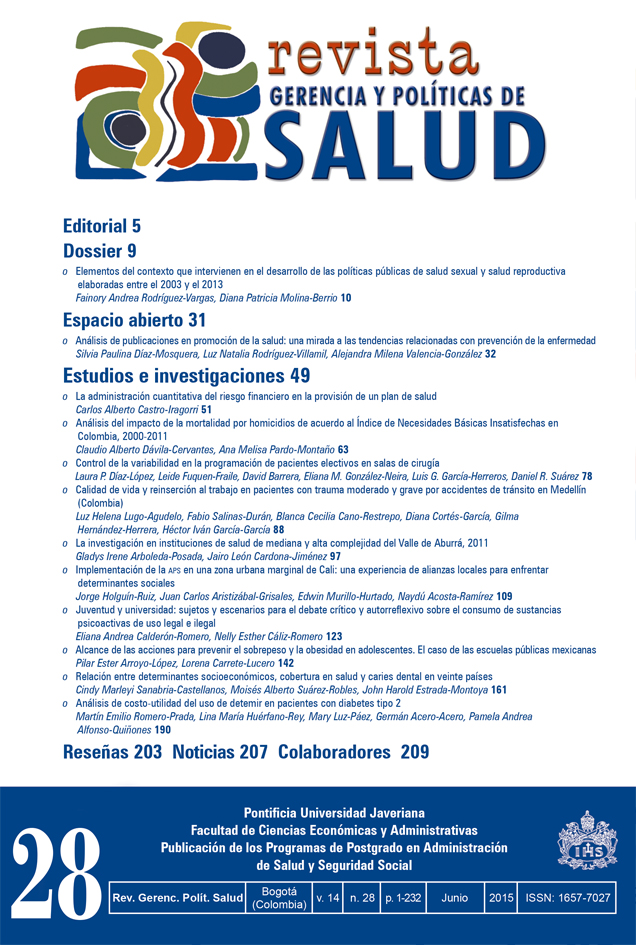Abstract
The purpose of this research was to understand the reasons that led a group of young university students into the use of legal and illegal psychoactive drugs. This is a qualitative case study research, with a phenomenological design, with the participation of 32 students. The research techniques used were participant observation, non-participant observation, and focus groups. For data analysis we applied moment distinction, phenomenological reductions; and open, axial, and selective codification criteria. The main results show that the most used substances are alcohol, tobacco, and marihuana; regarding motivations, these are associated to family and academic settings, relationship with peers, personal decision, micro-traffic of illegal substances, and commerce of legal substances. Drug use turns into a network of social determinations around which the University could open a critical and self-reflective debate, focused on the subject and not on the substances.
Copyright notice
The Journal Management and Health Policies is registered under the Creative Commons Recognition 4.0 International license. Therefore, this work can be reproduced, distributed and publicly communicated in digital format, provided that the name of the authors and the Pontificia Universidad Javeriana are recognized. It is allowed to quote, adapt, transform, autoarchive, republish and create from the material, for any purpose (including commercial), provided that authorship is properly acknowledged, a link to the original work is provided and if changes have been mad. The Pontificia Universidad Javeriana does not retain the rights over published works and the contents are the exclusive responsibility of the authors, who preserve their moral, intellectual, privacy and publicity rights.
The endorsement of the intervention of the work (revision, style correction, translation, layout) and its subsequent disclosure is granted through a license to use and not through a transfer of rights, which means that the journal and the Pontificia Universidad Javeriana disclaims any liability that may arise from ethical misconduct on the part of the authors. As a result of the protection provided by the license for use, the journal is not obliged to publish retractions or modify the information already published, unless the erratum arises from the process of editorial management. The publication of contents in this magazine does not represent royalties for taxpayers.


